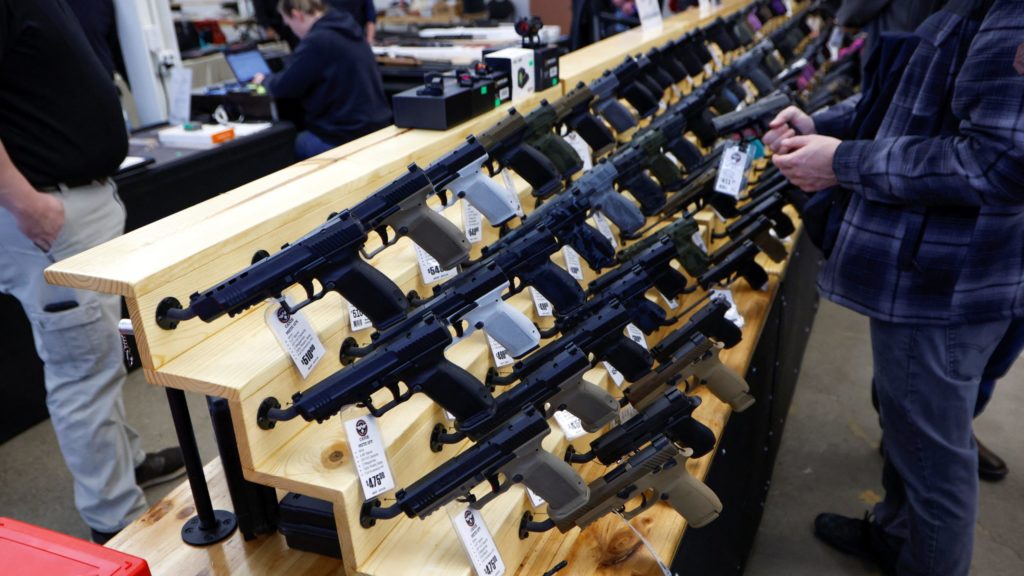President Joe Biden announced March 14 he would sign an executive order aiming to increase the number of background checks on prospective gun buyers, as well as measures to promote red flag laws and the secure storage of firearms.
The executive order, released the same day by the White House, does not change existing laws, but rather directs federal agencies to ensure compliance with those laws.
"I continue to call on the Congress to take additional action to reduce gun violence, including by banning assault weapons and high-capacity magazines, requiring background checks for all gun sales, requiring safe storage of firearms, funding my comprehensive Safer America Plan, and expanding community violence intervention and prevention strategies," Biden, a Catholic Democrat, said in the order. "In the meantime, my Administration will continue to do all that we can, within existing authority, to make our communities safer."
In remarks announcing the order during a visit to the Boys & Girls Club of West San Gabriel Valley in Monterey Park, California, a community where a Jan. 21 shooting at a dance studio on the eve of the Lunar New Year left 11 dead. Biden said the massacre "turned into a day of fear and darkness."
"A holiday of hope and possibilities marked by horror and pain," he said. "Vibrant dances and music replaced by vigils and memorials. Eleven souls taken. Nine injured. Private mourning made public."
The White House argued that ensuring all lawful background checks take place on prospective buyers will bring the nation as close to universal background checks as possible without the passage of new legislation.
Biden has called for universal background checks, but such proposals face unlikely odds in a divided Congress, where Republicans hold a narrow House majority.
"I continue to call on Congress to require background checks for all firearm sales," Biden said. "In the meantime, my executive order directs my Attorney General to take every lawful action possible to move us as close as we can to universal background checks without new legislation."
"I just -- it's just common sense to check whether someone is a felon, a domestic abuser, before they buy a gun," he added.
In June, Biden signed the Bipartisan Safer Communities Act, a narrow gun safety bill into law that expanded the background check system for prospective gun buyers under 21 years old, closed a provision known as the "boyfriend loophole," banning domestic abusers from purchasing firearms regardless of their marital status, and invested in mental health resources.
That bill, a product of long-sought bipartisan compromise on gun violence, came in the wake of a mass shooting at ??Robb Elementary School in Uvalde, Texas, that left 19 children and two teachers dead the previous month.
That legislation did not go as far as the president has called for, but he praised it as a bipartisan achievement when he signed it.
In his remarks in Monterey Park, Biden called that bill "the most significant gun safety law in almost 30 years."
The Bipartisan Safer Communities Act was praised by the U.S. Conference of Catholic Bishops, which encouraged Congress "to continue working to confront the plague of gun violence in our nation."

